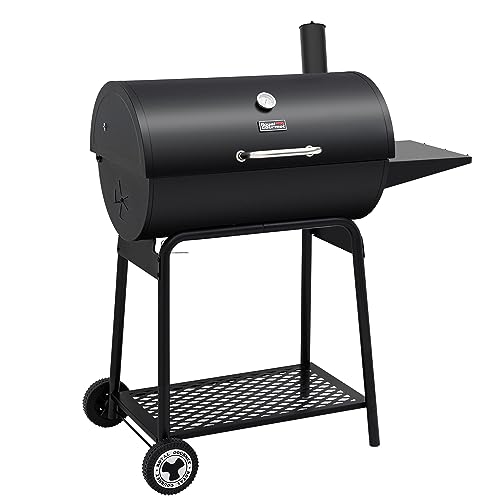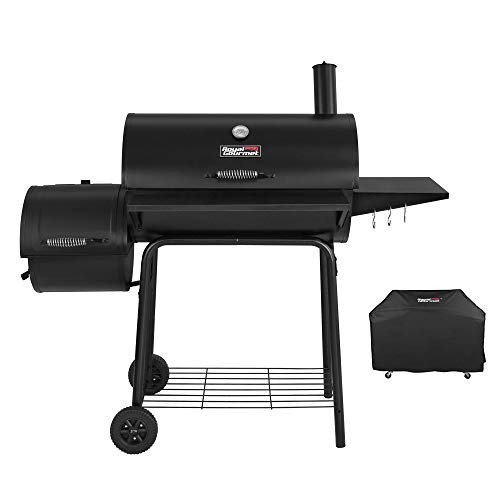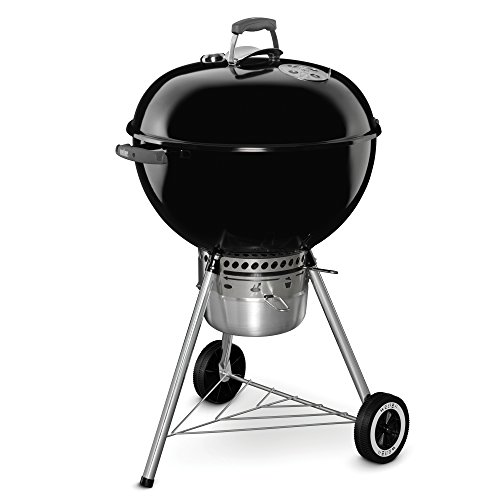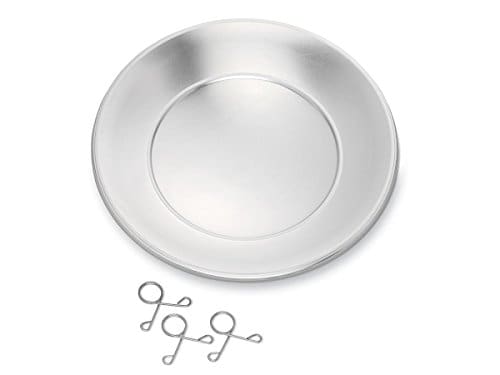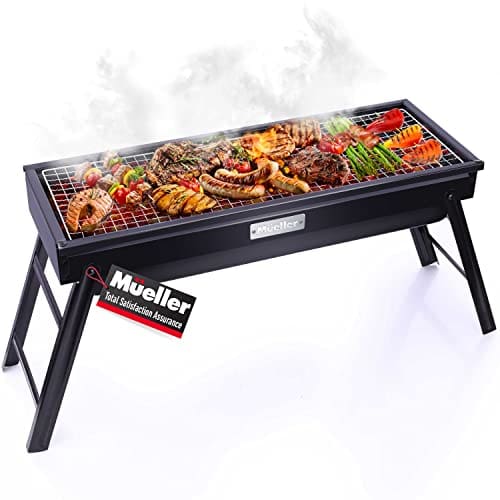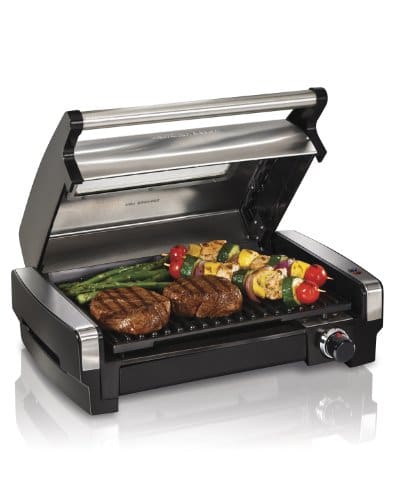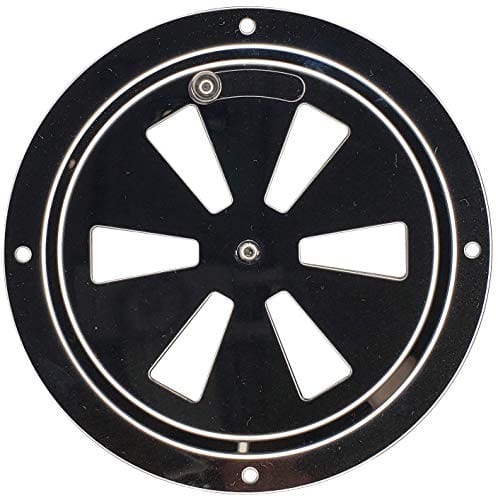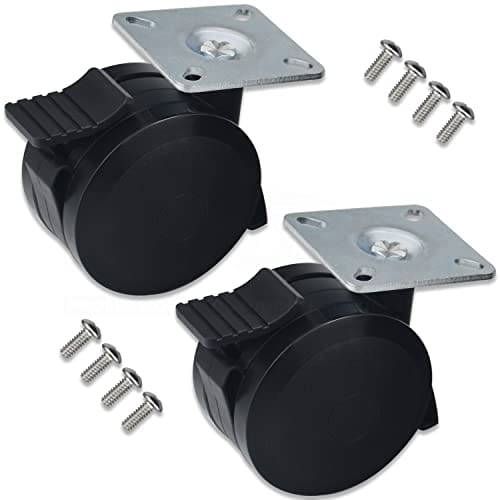Gas vs. Charcoal
Are you ready to ignite the flame of outdoor grilling? Nothing beats the tantalizing smell of sizzling meat and the crackle of fire as you gather your loved ones for a delicious barbecue. But before you can start flipping patties, there’s an age-old debate that needs addressing: gas or charcoal? Choosing the right grilling method can make all the difference in your cooking experience. In this post, we’ll explore the pros and cons of each option so that you can make an informed decision and achieve grilling greatness. So grab your apron and let’s dive into the sizzling world of gas vs. charcoal grilling!
Top-rated outdoor grills for the ultimate grilling experience
Gas Grills
When it comes to outdoor cooking, gas grills have become a popular choice for many homeowners and grill enthusiasts. With their convenience, quick heating, and precise temperature control, it’s no wonder why gas grills have gained such popularity. In this blog section, we’ll dive into the benefits of gas grills, how they work, and explore any potential drawbacks.
Benefits of Gas Grills
Gas grills offer several advantages over other types of grills, making them a top choice for outdoor cooking aficionados. Here are some key benefits that make gas grills stand out:
1. Convenience
- Gas grills provide the ultimate convenience, as they are quick and easy to fire up. No more fussing with charcoal briquettes or worrying about flare-ups. With a simple push of a button or turn of a knob, your gas grill is ready to go.
- They also eliminate the need for wood or charcoal, which means no ash cleanup or storing of combustible materials.
2. Quick Heating
- Gas grills heat up rapidly, allowing you to start grilling in no time. Most gas grills reach their optimal cooking temperature within 10-15 minutes, compared to the longer wait times associated with charcoal grills.
- This quick heating feature makes gas grills perfect for spontaneous gatherings or weeknight dinners when time is of the essence.
3. Precise Temperature Control
- One of the standout features of gas grills is the ability to control the temperature precisely. Most modern gas grills come with built-in temperature gauges, allowing you to monitor the heat accurately.
- Many gas grills also have multiple burners, which enable you to create different heat zones on the grill. This setup is excellent for cooking different types of food simultaneously or searing meats at high heat and finishing them at a lower temperature.
How Gas Grills Work
Gas grills run on either natural gas or propane. Here’s a breakdown of how gas grills work:
- Fuel Source: Gas grills are connected to a propane tank or a natural gas line. Propane tanks offer portability, while a natural gas line provides a steady fuel source without the need for tank refills.
- Burners: The burners in a gas grill are responsible for generating heat. They can be made of stainless steel, cast iron, or brass and are ignited using either an electronic starter or a manual lighter.
- Temperature Control: Once ignited, the gas burners heat the grill’s cooking grates, allowing you to cook your food. The heat intensity is adjusted by regulating the flow of gas through the burners using the grill’s control knobs.
Potential Drawbacks
While gas grills offer numerous benefits, it’s essential to consider potential drawbacks before making a purchase:
- Gas grills tend to be more expensive upfront compared to charcoal grills.
- Natural gas grills require a fixed gas line, limiting their portability.
- Some grill enthusiasts argue that charcoal grills provide a distinctive smoky flavor that gas grills may lack, although some gas grills now come with smoke boxes or smoker attachments to mitigate this concern.
In summary, gas grills offer unparalleled convenience, quick heating, and precise temperature control, making them a popular choice for outdoor cooking. Their easy start-up, reliable heating, and versatility make gas grills suitable for both beginner grillers and seasoned cooks alike. While they may have a higher price point and some debate over smoky flavor, the advantages that gas grills bring to the table undoubtedly outweigh the potential drawbacks.
So, why wait? Fire up your gas grill and start enjoying the delicious flavors of outdoor cooking today!
Want to know more about gas grills? Check our comparison table below for a quick breakdown of their key features:
| Key Features | Gas Grills |
|---|---|
| Convenience | Easy startup, no ash cleanup, no need for wood or charcoal. |
| Heating | Rapid heating within 10-15 minutes. Perfect for spontaneous cravings. |
| Temperature Control | Precise heat control, multiple burners for different heat zones. |
| Fuel Options | Propane tanks for portability, natural gas line for a steady fuel source. |
| Price | Higher upfront cost compared to charcoal grills. |
| Smoky Flavor Debate | Some argue that gas grills lack the distinctive smoky flavor of charcoal grills. |
Charcoal Grills
Charcoal grills have long been a favorite among grilling enthusiasts due to the unique flavor they impart on food. In addition to the delicious smoky taste, charcoal grills offer several advantages over other types of grills. Whether you’re a grilling novice or a seasoned pro, understanding the benefits and process of using a charcoal grill can enhance your outdoor cooking experience.
Smoky Flavor
One of the primary reasons people choose charcoal grills is for the distinct smoky flavor they bring to grilled foods. The use of charcoal briquettes or lump charcoal, combined with wood chips or chunks, creates a wonderful aroma and taste that simply cannot be replicated by other grilling methods. This smoky flavor adds depth and richness to a variety of dishes, from juicy steaks to perfectly charred vegetables.
Versatility
Charcoal grills offer a level of versatility that is hard to match. They excel at both high-heat grilling and slow cooking, providing endless possibilities for outdoor cooking adventures.
High-Heat Grilling
When it comes to searing steaks, charring burgers, or achieving that beautiful caramelization on grilled vegetables, charcoal grills are the go-to choice. The intense heat generated by the burning charcoal allows for quick and even cooking, creating those coveted grill marks and wonderful charred flavors.
Slow Cooking
One of the standout features of charcoal grills is their ability to maintain a consistent low temperature over a long period of time, making them perfect for slow cooking. Whether you’re smoking a brisket, barbecuing ribs, or even roasting a whole chicken, charcoal grills provide the control needed to achieve tender, succulent results.
Process of Using a Charcoal Grill
Using a charcoal grill may seem intimidating at first, but with some practice and basic knowledge, it can be a rewarding and enjoyable experience. Here’s a step-by-step guide to get you started:
- Preparation: Begin by cleaning the grill grates and removing any ash or debris from the previous use. This ensures optimal heat distribution and prevents any unpleasant flavors.
- Lighting the Charcoal: There are several methods to light charcoal, including using a chimney starter, lighter fluid, or an electric starter. It’s important to choose a method that suits your preference and avoids the use of harmful chemicals.
- Chimney Starter: This highly popular method involves placing charcoal briquettes or lump charcoal in a metal chimney starter and lighting a newspaper or fire starter underneath. The lit flames will ignite the charcoal, which will be ready for cooking once covered in a layer of gray ash.
- Lighter Fluid: While not as favored due to the potential for off-flavors, lighter fluid can be used sparingly to ignite the charcoal. It’s crucial to follow the manufacturer’s instructions and allow the fluid to completely burn off before placing food on the grill.
- Electric Starter: These devices use an electric element to ignite the charcoal. Though convenient, they can take slightly longer than other methods.
- Arranging the Charcoal: Once the charcoal is lit and covered in ash, carefully pour it onto one side of the charcoal grate, creating a two-zone fire. This setup allows for both direct and indirect cooking.
- Grilling: Now it’s time to cook! Place the food directly over the coals for high-heat grilling or on the other side of the grill for indirect cooking. Monitor the temperature and adjust the vents on the grill lid to control the airflow and heat.
Limitations of Charcoal Grills
While charcoal grills offer numerous advantages, it’s important to note a few limitations:
- Time and Effort: Lighting and preparing a charcoal grill may take some extra time and effort compared to gas grills or electric grills.
- Temperature Control: Achieving precise temperature control can be more challenging with a charcoal grill, especially for beginners. It requires practice and adjustment to find the right balance.
- Cleaning and Maintenance: Charcoal grills tend to produce more ash than other grill types, requiring regular cleaning and maintenance to ensure optimal performance.
Comparison of Gas and Charcoal Grills
Grilling is a favorite pastime for many outdoor enthusiasts. Whether it’s a backyard barbecue or a camping trip, the choice between using a gas or charcoal grill is an important decision. Both types of grills have their own unique characteristics and benefits. In this blog post, we will compare and contrast gas and charcoal grills in terms of cost, maintenance, flavor, and cooking techniques, helping you make an informed choice for your grilling needs.
Cost
When it comes to cost, gas grills tend to be more expensive upfront compared to charcoal grills. However, they provide better long-term value due to their efficiency and ease of use. On the other hand, charcoal grills are generally more affordable initially, but ongoing fuel costs can add up over time.
Key points:
- Gas grills: Higher upfront cost, lower long-term fuel costs.
- Charcoal grills: Lower upfront cost, higher long-term fuel costs.
Maintenance
Maintenance is an essential aspect to consider when choosing between gas and charcoal grills. Gas grills require less maintenance and offer convenience with features such as electronic ignition and easy temperature control. Cleaning is also relatively simple, with removable grease trays and drip pans. On the contrary, charcoal grills need more attention, mainly due to ash removal and frequent cleaning of the grill grates.
Key points:
- Gas grills: Less maintenance, convenience, easy cleaning.
- Charcoal grills: More maintenance, regular ash removal, cleaning of grill grates.
Flavor
When it comes to flavor, charcoal grills have their own distinct advantage. The burning charcoal produces smoke, which imparts a unique, smoky flavor to the food. This is particularly desirable for those who enjoy the classic barbecue taste. Gas grills, while being more convenient, lack the smoky flavor unless you use smokers or add smoke boxes to simulate charcoal grill flavors.
Key points:
- Gas grills: Limited smoky flavor, unless using smokers or smoke boxes.
- Charcoal grills: Offers distinct smoke-enhanced flavor.
Cooking Techniques
Both gas and charcoal grills offer versatility in cooking techniques, but there are slight differences. Gas grills are great for direct heat cooking and quick heat adjustments, making them ideal for searing meats and delicate dishes that require precise temperature control. Charcoal grills offer the option for both direct and indirect heat cooking. The coals can be pushed to one side to create a two-zone setup, allowing for more versatile cooking, such as slow-roasting or smoking.
Key points:
- Gas grills: Direct heat cooking, easy temperature control.
- Charcoal grills: Direct and indirect heat cooking, versatile options.
Personal Preferences and Factors to Consider
Choosing between a gas or charcoal grill ultimately comes down to personal preferences and specific factors. Here are some important considerations:
- Convenience: Gas grills offer the advantage of quick start-up and easier temperature control. Charcoal grills require more time and effort to achieve the desired temperature and maintain it consistently.
- Portability: If you frequently travel or go camping, you might prefer a portable charcoal grill due to its lightweight and compact design.
- Flavor preference: If you enjoy the authentic, smoky taste associated with traditional barbecues, a charcoal grill might be your best bet.
- Budget: Consider your initial budget and ongoing fuel costs while making a choice.
Key points:
- Convenience, portability, flavor preference, and budget are important factors to consider while choosing between gas and charcoal grills.
In conclusion, both gas and charcoal grills have their own advantages and characteristics that cater to different needs. Gas grills offer convenience, ease of use, and precise temperature control, while charcoal grills provide the unparalleled smoky flavor and versatility in cooking techniques. Consider your personal preferences, budget, and grilling requirements to make the best choice for your outdoor cooking adventures. Happy grilling!
Note: Format this content in Markdown.
Making the Choice: Final Considerations
In conclusion, the blog post explored the key differences between gas and charcoal grills, taking into account factors such as convenience, flavor preference, and cooking techniques. Gas grills offer the advantage of convenience, providing faster and easier heat control, making them ideal for those who value convenience and simple cooking. On the other hand, charcoal grills enhance the smoky flavor and give that traditional grilling experience cherished by many. If you prioritize speed and simplicity, a gas grill may be the best choice for you. However, if you crave that authentic smoky flavor and don’t mind the extra effort, a charcoal grill is the way to go. Ultimately, the choice between gas and charcoal depends on your personal preferences and how you like to grill. So, consider these factors and make an informed decision to ensure an enjoyable grilling experience!


